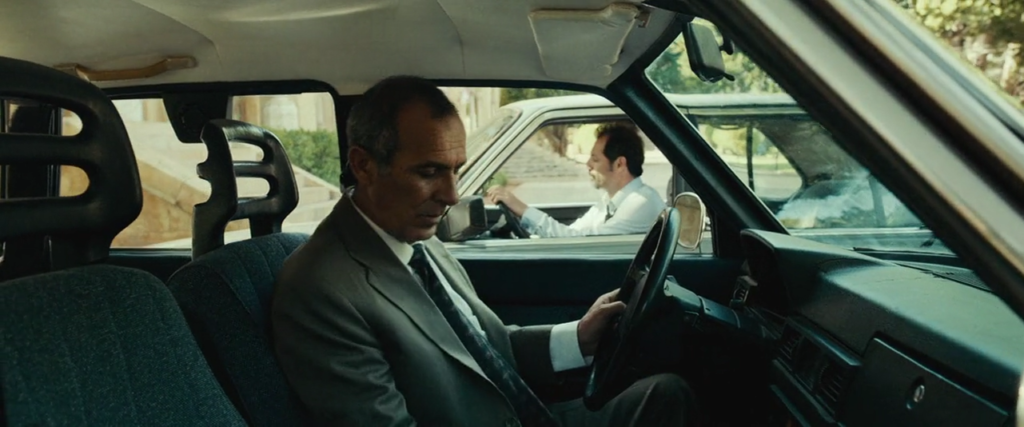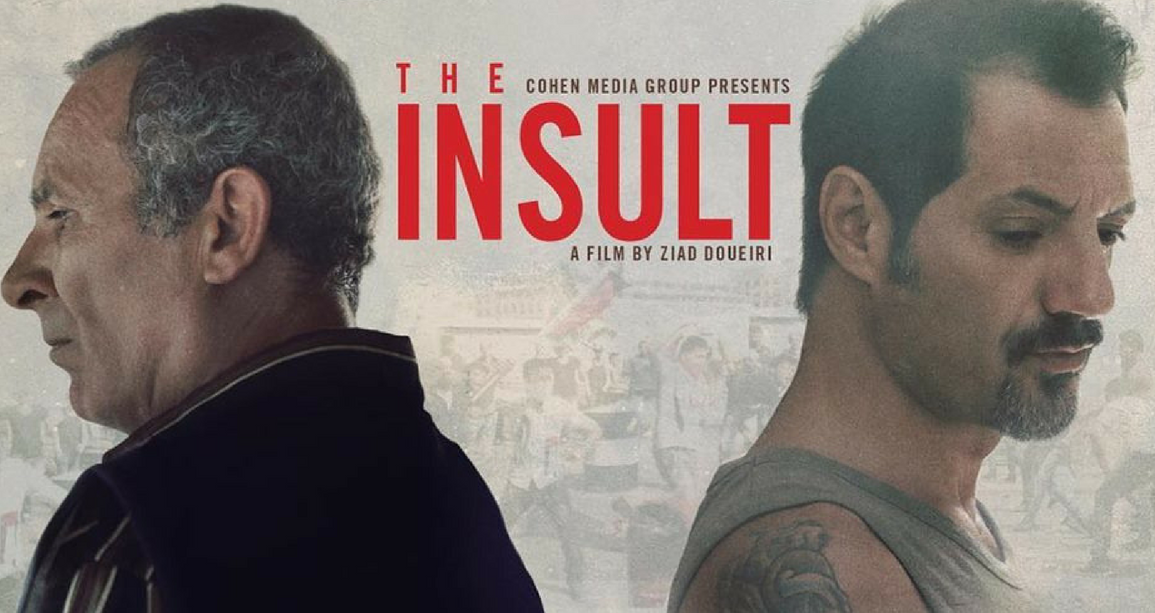Ziad Doueiri’s Lebanese drama ‘The Insult,’ shortlisted for the foreign-language film Oscar, explores Lebanon’s sectarian divisions showing how a minor argument can become a national issue. The courtroom drama is timely and imperative for everyone witnessing a society being divided.
With some narrative twists the film follows the story of two men pitted against each other, proclaiming their victimhood. The story shows how cultural and historical narratives could manifest and shape our actions.
The film’s title justifies its series of insults. Tony Hanna (Adel Karam), a Lebanese Christian, is a mechanic with a pregnant wife. He accidentally splashes water over Yasser Salameh (Kamel El Basha), a Palestinian Muslim foreman of a construction company repairing Tony’s block of apartment buildings. Yasser’s request to fix Tony’s gutter pipe is met with resentment, but he does it anyway. Tony smashes the new pipe, to which Yasser calls him a ‘fucking prick’.
“For me, words are a form of action, capable of influencing change. Their articulation represents a complete, lived experience.”
– Ingrid Bengis
This interaction acts as the premise, setting the story in motion. What follows is a series of insults and lawsuits, making it a tense drama. The conflict establishes the involvement of two male egos. Tony is short tempered while Yasser is quiet and serious, hiding a deep sense of protest. The best part is that the story does not stereotype their actions keeping the audience aloof of expectations.  Both Tony and Yasser have a backstory which affects their actions and character. Tony’s anger toward Palestinians is rooted in a massacre, while Yasser’s past is similarly burdened with the history of his people’s injury and diaspora. Viewers can side with either Tony or Yasser but the narrative questions your decision. It compels towards a detached viewing of the situation. As the story unfolds, it forces our sympathy towards the two men equally and shows that a personal conflict can reveal something more complex.
Both Tony and Yasser have a backstory which affects their actions and character. Tony’s anger toward Palestinians is rooted in a massacre, while Yasser’s past is similarly burdened with the history of his people’s injury and diaspora. Viewers can side with either Tony or Yasser but the narrative questions your decision. It compels towards a detached viewing of the situation. As the story unfolds, it forces our sympathy towards the two men equally and shows that a personal conflict can reveal something more complex.
Our morality might expect us to work for an uplifting solution to a conflict thinking that we are all the same. We may hug, shake hands or apologize to ensure that things move on. But that might be a lie. Everyone who holds a grudge does so for a reason, and fears that letting go of it would mean the loss of something precious. The Insult discusses such subtle topics of human hatred simply yet deeply with implications.

